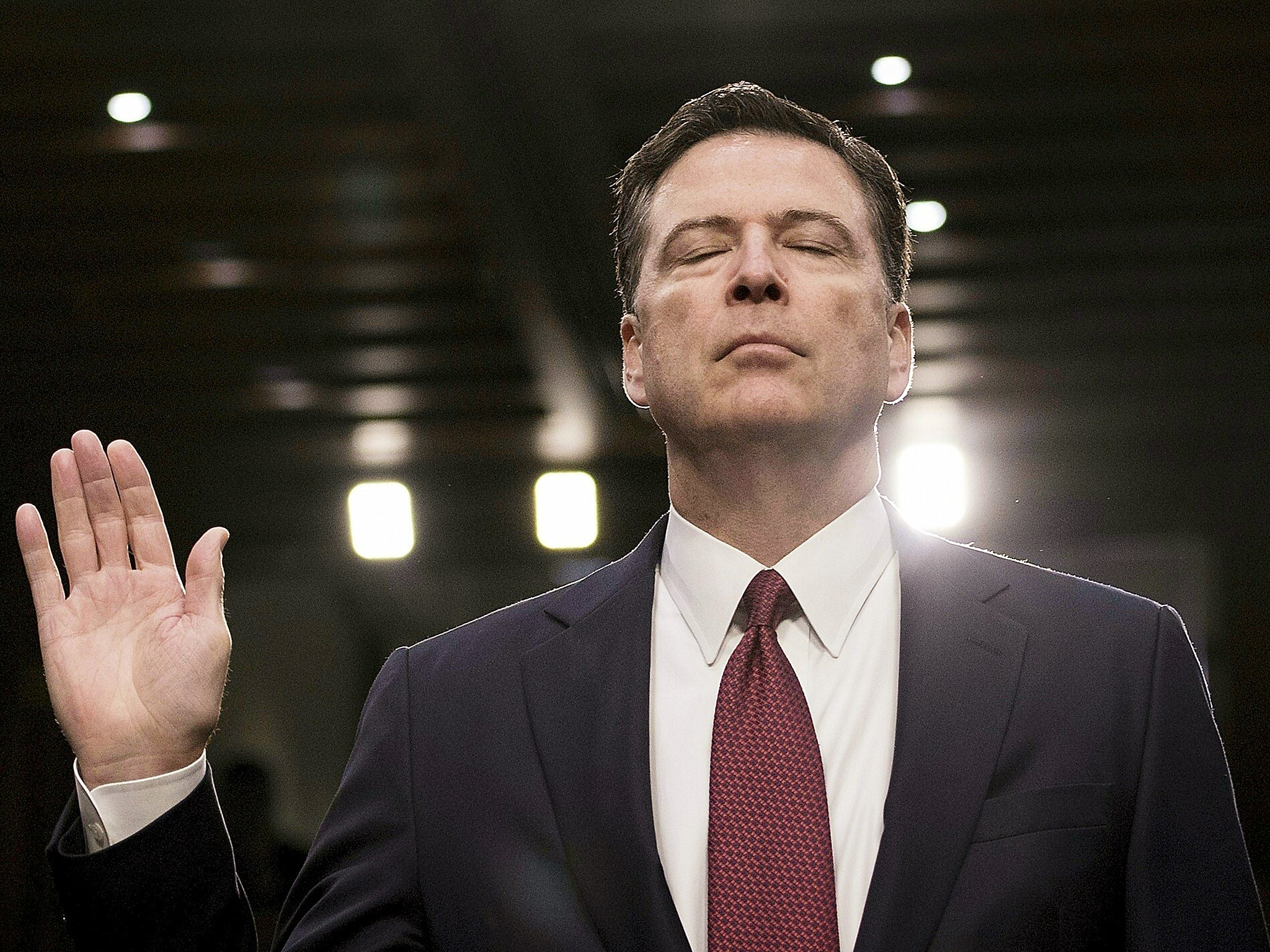Donald Trump admits he has no tapes of conversations with James Comey
Richard Nixon notoriously recorded all of his conversations

Your support helps us to tell the story
From reproductive rights to climate change to Big Tech, The Independent is on the ground when the story is developing. Whether it's investigating the financials of Elon Musk's pro-Trump PAC or producing our latest documentary, 'The A Word', which shines a light on the American women fighting for reproductive rights, we know how important it is to parse out the facts from the messaging.
At such a critical moment in US history, we need reporters on the ground. Your donation allows us to keep sending journalists to speak to both sides of the story.
The Independent is trusted by Americans across the entire political spectrum. And unlike many other quality news outlets, we choose not to lock Americans out of our reporting and analysis with paywalls. We believe quality journalism should be available to everyone, paid for by those who can afford it.
Your support makes all the difference.Donald Trump has said he has no recordings of his controversial conversations with former FBI Director James Comey - but has left open the possibility that such an audio record may exist.
The President ignited a furore when he had raised the prospect that there may be such recordings when he tweeted last month, in the aftermath of his firing of Mr Comey, while he was heading a probe into possible collusion between the Trump campaign and Russia. “James Comey better hope that there are no ‘tapes’ of our conversations before he starts leaking to the press,” he said.
For weeks, Mr Trump and the White House refused to confirm or deny whether or not any such recordings existed. “Well, that I can’t talk about,” the President had told Fox News shortly after he published the initial tweet.
“I won’t talk about that. All I want is for Comey to be honest. And I hope he will be.”
At one point, the issue appeared to descend to the level of farce. White House spokeswoman Sarah Huckabee Sanders promised reporters she would “search under the couches” for such recordings, while Mr Comey urged Mr Trump to release them if they existed.
“I’ve seen the tweet about tapes. Lordy, I hope there are tapes,” Mr Comey told the senators, when he was testifying on Capitol Hill.
Mr Trump has now said he does not have recordings, suggesting his original tweet was either meant to intimidate Mr Comey, or else simply distract attention from the firing of the FBI boss
“With all of the recently reported electronic surveillance, intercepts, unmasking and illegal leaking of information, I have no idea whether there are “tapes” or recordings of my conversations with James Comey, but I did not make, and do not have, any such recordings,” he said.
While Mr Trump may have not made any recordings of his conversations with the former FBI Director, which happened on the phone as well as in person, Mr Comey kept detailed memos of what he discussed with the President. These memos formed the basis of his testimony on Capitol Hill
In them, he recorded that Mr Trump had asked several times for an oath of loyalty, that he requested he drop the investigation into former national security advisor Michael Flynn and asked him to confirm that he was personally not being investigated.
Mr Comey testified that he took detailed notes of his private talks with the President – something he had not done after his conversations with Barack Obama - because he was concerned he may not be honest about what transpired.
“I knew there might come a day when I would need a record of what had happened,” he said. “I was honestly concerned [President Trump] might lie about the nature of our meeting so I thought it important to document.”
The issue of secret recordings in the White House became notorious after it emerged that Richard Nixon had for many years recorded conversations of people he spoke to in the Oval Office, and on the telephone.
Join our commenting forum
Join thought-provoking conversations, follow other Independent readers and see their replies
Comments